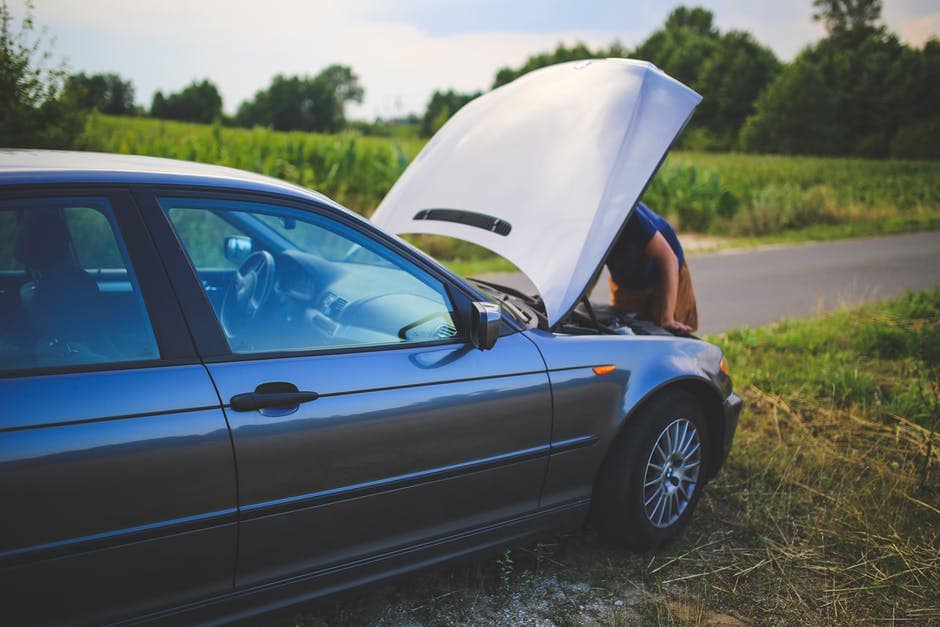A car’s engine should turn on and shut off on the fly, all with a turn of your key in the ignition. That’s why engine stalling (i.e., engine suddenly dying on you) is a clear sign of a problem. It’s even worse if your car keeps stalling despite restarting it.
When your engine keeps stalling, it's not getting a reliable supply of air, fuel, or sparks necessary to stay running. This can be due to clogged filters or obstructed intakes, but there can be more serious causes, such as faulty sensors, an overheated fuel pump, and wiring problems.
Reading this guide will help you understand what it means when your car's engine keeps stalling. Once you know the likely reasons, troubleshooting and preventing the problem becomes much easier.
What Does Engine Stalling Feel Like?
The concept of a stalling engine is pretty straightforward, at least in theory. When your engine stalls, it fails to continue running on its own and dies out. The engine may or may not run again when you restart it, depending on the root cause.
That might not sound like a big deal at first, like if your car is stationary or parked when the engine stalls.
Imagine how terrifying it must be to find your engine stalling while you’re on the road.
When that happens, your car loses power, the engine stops running, and every component powered by the engine will stop working.
That means you’ll simultaneously lose power steering and power brakes when the engine stalls. Imagine losing power and struggling to apply the brakes or steer the vehicle to the side! What if you’re several lanes away from the roadside?! That’s a scary thought to novice and veteran drivers alike.
That’s why you must understand what causes engine stalling so you can troubleshoot it quickly and fix the root cause.
What Causes Engine Stalling?
An engine that stalls one time might be experiencing a fluke or just a minor problem. However, one that keeps stalling is clearly problematic and requires troubleshooting and repairs.
When your car’s engine keeps stalling, it experiences any or a combination of the following issues:
1. Unreliable Supply of Fuel or Air
Firstly, we must remember that a car engine runs on fuel and air. Mixing the two at the correct ratio and then combusting them allows the engine to produce power to keep itself going.
Thus, the first thing you should inspect is whether there’s an unreliable supply of fuel, air, or both.
You can begin the troubleshooting process by checking your fuel system. Starting at the fuel tank, you might find one or more of these problems:
- A failing fuel pump
- A clogged fuel line
- A dirty fuel filter
Meanwhile, your engine might also have a dirty air filter or an obstruction in its air intake.
Air filters gradually become saturated with contaminants, impeding anything from flowing and causing engines to stall, that’s why you must change them regularly.
2. Faulty Sensors
If the problem isn’t due to a clog, dirty filter, or faulty part, the next suspects are defective sensors.
Your car relies on several sensors to decide how much fuel and air to mix. The mass airflow sensor (MAF) is a perfect example of that.
The sensor measures how much air enters the engine and sends that information to the car’s computer. Based on that data, the computer will decide how much fuel to inject into the engine to maintain the correct air/fuel ratio.
A faulty sensor will send the wrong data to the computer, causing it to malfunction. For instance, the computer might mistakenly stop injecting any fuel to maintain the correct ratios.
As a result, the engine will repeatedly stall because the sensor isn’t working correctly.
3. Faulty Spark Plugs or Ignition Coil
Of course, air and fuel aren’t the only things necessary for the engine’s combustion process. Once the correct air and fuel ratio is accomplished inside the engine’s chambers, a spark is needed to ignite and combust that mixture.
Your engine can keep stalling if this part of the process becomes unstable or unreliable. In this case, that means an erratic supply of sparks.
Sparks are generated by spark plugs which get their power from the car’s electrical system. That power is supplied through the ignition coil that connects to all spark plugs simultaneously.
Engine stalling becomes more likely if there’s a problem with the spark plugs or the ignition coil.
4. Overheated Fuel Pump
Suppose your car engine has no problem starting but keeps stalling soon after. If those are the symptoms, you must also troubleshoot for an overheating fuel pump.
Faulty fuel pumps can overheat after running for a few moments. That overheating condition will prevent the pump from supplying enough fuel to the engine, causing a stall.
5. Wiring Problems
Once you rule out all possibilities, the final thing to consider is whether your car has wiring problems causing engine stalling. Vehicles have miles of wiring concealed inside the vehicle's panels.
That wiring transmits electrical power and signals where needed, so the car’s components can function correctly.
Wiring problems can prevent the flow of power and signals, and that is enough to cause continuous engine stalling.
Wires can experience problems like physical damage (e.g., rips, tears, holes). On top of that, electrical faults like short circuits can cause wires to overheat and burn themselves.
The solution is straightforward: to replace the affected section of wiring. However, the time-consuming and labour-intensive part is in locating the affected wiring in the first place.
Solving repetitive engine stalling and other car problems can be challenging if you decide to do it yourself. Unfortunately, good help is often hard to find, but it’s much easier now with CarpartAU’s Directory. You can search for local automotive businesses and narrow down the types you need there. Then, you can contact them directly to solve your problem!
By Ray Hasbollah

